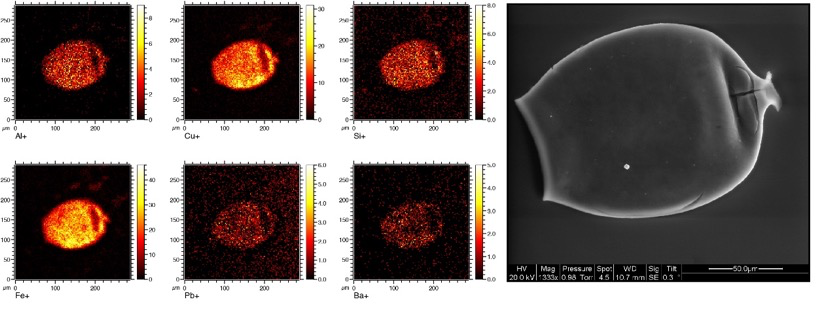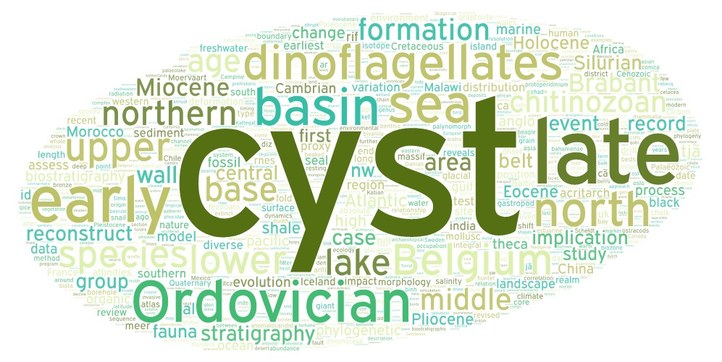Research Unit Palaeontology and Palaeo-environments
The Palaeontology and Palaeo-environments Research Group mainly focuses on reconstructing environmental conditions and the evolution of life from ancient Palaeozoic times to the current Anthropocene.
This research programme helps us understand when, how and at which pace environments and climates changed in the past, and how this happened in tandem with the evolution of life on Earth.
The core specialization of the research group is in palynology (the study of microfossils with an organic wall). These range from the remains of ancient tiny marine planktonic organisms to the spores and pollen of modern trees. We study the spatial and temporal distribution of these fossils, along with their geochemical composition. We also study other and larger fossils, and use stratigraphical methods, sedimentology, geological field observations, and complex numerical climate models. Combined, these data inform us … how ancient icecaps grew and disappeared again … how oceans and marine life evolved … how the biosphere, oceans and atmosphere interacted … how and when humans settled in our region … what processes govern the evolution of life …. Based on our research of how life on Earth responded to major environmental changes in the past, we can help predicting how it may respond in the future.

Contact:
Prof. dr. Stephen Louwye of Prof. dr. Thijs Vandenbroucke
Ghent University -Department of Geology
Campus Sterre, S8
Krijgslaan 281
B-9000 Gent
